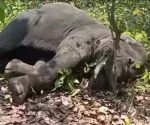ILS gets advanced marine bio-tech lab | Bhubaneswar News

Bhubaneswar: The department of biotechnology (DBT) has introduced a state-of-the-art marine biotechnology laboratory at the Institute of Life Sciences (ILS) Bhubaneswar. Rajesh Gokhale, secretary of DBT, inaugurated the facility recently during his visit to the institute.
Gokhale said computational approaches played a significant role in bioprospecting. He highlighted the importance of collaborative efforts in unlocking the untapped potential of marine resources.
“The challenges we face today can be transformed into sustainable, game-changing solutions by leveraging marine biotechnology. Data driven approaches and collaboration will be key to success,” he said.
He also discussed the newly-introduced Bio-E3 policy and emphasised its potential to revolutionise coastal economies, particularly in states like Odisha, known for their vast coastal resources.
“The policy is expected to drive innovation, accelerate blue economy initiatives, and promote sustainable development across coastal regions in both the state and throughout India,” the secretary said.
As part of his visit, the secretary participated in a meeting titled “Challenges and Opportunities of Marine Bioprospecting in India.” Leading scientists and policymakers came together to discuss strategies for effectively exploring India’s extensive marine biodiversity.
Experts discussed establishing frameworks and collaborations for research on the sustainable utilisation and bioprospecting of marine algae and microbes for clinical and industrial applications.
Bhubaneswar: The department of biotechnology (DBT) has introduced a state-of-the-art marine biotechnology laboratory at the Institute of Life Sciences (ILS) Bhubaneswar. Rajesh Gokhale, secretary of DBT, inaugurated the facility recently during his visit to the institute.
Gokhale said computational approaches played a significant role in bioprospecting. He highlighted the importance of collaborative efforts in unlocking the untapped potential of marine resources.
“The challenges we face today can be transformed into sustainable, game-changing solutions by leveraging marine biotechnology. Data driven approaches and collaboration will be key to success,” he said.
He also discussed the newly-introduced Bio-E3 policy and emphasised its potential to revolutionise coastal economies, particularly in states like Odisha, known for their vast coastal resources.
“The policy is expected to drive innovation, accelerate blue economy initiatives, and promote sustainable development across coastal regions in both the state and throughout India,” the secretary said.
As part of his visit, the secretary participated in a meeting titled “Challenges and Opportunities of Marine Bioprospecting in India.” Leading scientists and policymakers came together to discuss strategies for effectively exploring India’s extensive marine biodiversity.
Experts discussed establishing frameworks and collaborations for research on the sustainable utilisation and bioprospecting of marine algae and microbes for clinical and industrial applications.
















